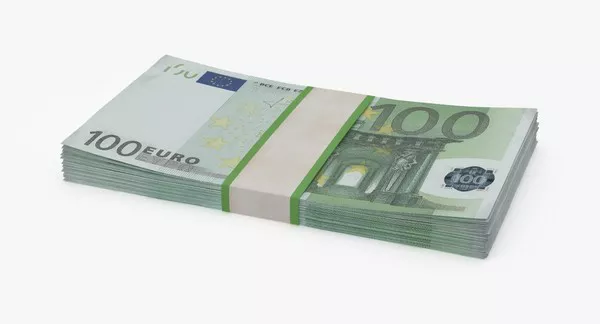The Euro to Naira exchange rate is an important economic indicator for businesses and individuals who engage in international trade between Nigeria and the European Union (EU). As of today, June 5th, 2023, the Euro to Naira exchange rate stands at €1 = ₦540.45. This represents a significant increase from the exchange rate of €1 = ₦480.00 recorded just two years ago, highlighting the volatility of the Nigerian currency.
In this article, we will explore the factors that influence the Euro to Naira exchange rate and provide an in-depth analysis of its current status.
Factors Influencing the Euro to Naira Exchange Rate
-
Economic Performance of Nigeria
The economic performance of Nigeria plays a significant role in determining the value of the Naira against the Euro. If the Nigerian economy is performing well and there is increased demand for Nigerian goods and services, the value of the Naira will appreciate, resulting in a lower Euro to Naira exchange rate. Conversely, if the country’s economic performance is weak, the value of the Naira will depreciate, resulting in a higher Euro to Naira exchange rate.
-
European Central Bank Policy
The policies of the European Central Bank (ECB) also influence the Euro to Naira exchange rate. The ECB sets interest rates and controls the money supply in the European Union, which affects the value of the Euro. If the ECB raises interest rates or reduces the money supply, the Euro will strengthen, resulting in a lower Euro to Naira exchange rate. Conversely, if the ECB lowers interest rates or increases the money supply, the Euro will weaken, resulting in a higher Euro to Naira exchange rate.
-
Political Stability
Political instability in Nigeria can negatively affect the value of the Naira, leading to a higher Euro to Naira exchange rate. This is because investors and traders may be reluctant to invest in a country that has unstable political conditions. On the other hand, if Nigeria’s political environment is stable, it can lead to increased investment and trade, resulting in a lower Euro to Naira exchange rate.
Analysis of the Current Euro to Naira Exchange Rate
As mentioned earlier, the current Euro to Naira exchange rate is €1 = ₦540.45. This represents a significant increase from the exchange rate of €1 = ₦480.00 recorded just two years ago. One of the major factors contributing to this increase is the depreciation of the Naira against major currencies due to inflation and economic uncertainty.
Nigeria’s economy has been struggling with high inflation rates, which have eroded the value of the Naira. Additionally, the COVID-19 pandemic has had a significant impact on the Nigerian economy, leading to reduced demand for oil, Nigeria’s main export commodity. This has further weakened the Naira against major currencies such as the Euro.
The policies of the European Central Bank have also influenced the current Euro to Naira exchange rate. In recent times, the ECB has lowered interest rates and increased the money supply to stimulate economic growth in the EU, resulting in a weaker Euro. This has contributed to the higher Euro to Naira exchange rate we are currently experiencing.
Furthermore, political instability in Nigeria has also played a role in the higher Euro to Naira exchange rate. The country has been grappling with security challenges, including an insurgency in the North-East and banditry in the North-West. The government’s response to these challenges has been criticized by both Nigerians and the international community, leading to reduced investor confidence in the country.
Conclusion
In conclusion, the Euro to Naira exchange rate is influenced by various factors, including the economic performance of Nigeria, ECB policy, and political stability. The current exchange rate of €1 = ₦540.45 highlights the challenges facing the Nigerian economy, including high inflation rates and reduced demand for oil. It is important for the government to implement policies that will stimulate economic growth and stabilize the Naira against major currencies such as the Euro. This will help to attract more investment and trade to Nigeria, leading to a lower Euro to Naira exchange rate in the long run.
Related Topics:




























